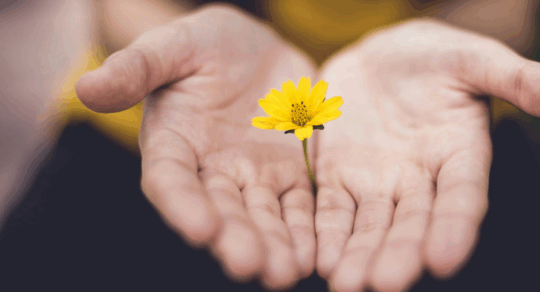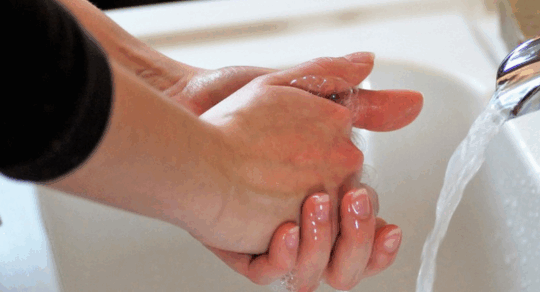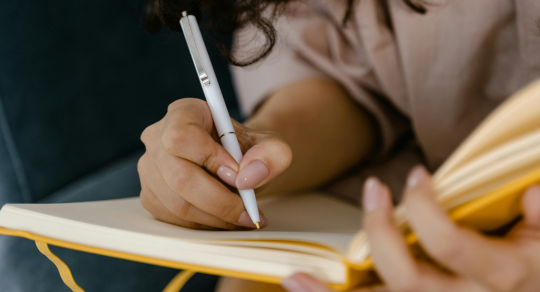“The quieter you become, the more you can hear.” – Ram Dass
The benefits of meditation are getting a lot of press lately. No longer viewed as a carryover from 1960’s hippie culture, meditation has been steadily finding new followers among the mainstream. It is even being integrated into educational settings, corporate environments, and prison programs.
About fifteen years ago, I had heard how meditation was a great way to relieve stress. I was certainly interested in figuring out how to make that happen, so I signed up for a meditation class.
When I would sit and try to quiet my mind, instead of getting calmer I would feel really jumpy. As the class progressed, there was no mention of this jumpy effect and the others in the class were “oohhing” and “aahhing” after each meditation session. I began to feel that meditation must have come naturally to both the teacher and the students, and that they had probably never been anxious in the first place. I also began to think that I was one of those people for whom meditation just might not work.
However, after practicing meditation for a while, I figured out why whenever I stopped moving I felt so anxious.
I grew up in a very anxious environment where people were moving around maniacally, never settling down or staying still, and I had continued to live this way as a young adult. It took until I was in my early twenties to understand that not everyone else in the world was moving constantly. With the help of a great therapist I actually learned to lay on the couch and watch movies. She gave me, much to my surprise, permission to do that and the assurance that this was completely normal, well-balanced behavior. I was thrilled to learn that a weekend was not the time to “get ahead” on work, school work, errands and cleaning. It was a time to relax. How about that?
Busyness is just one of many ways to avoid exactly what meditation seeks to accomplish. Meditation trains your brain to be quiet so you can tune in to your own feelings. And sometimes what you feel doesn’t feel so great. I figured out that good feelings and bad feelings are sort of like oil and vinegar. When you begin to pour them out of the bottle, the bitter vinegar has to come out first before you can pour out the silky smooth oil. So for me, meditation – and many other kinds of techniques that are meant to relieve stress – may at first unlock some of those bad feelings that need to be voiced, heard, addressed and expressed before the “oohhing” and “aahhing” can happen.
One day, on the way to my meditation class, I got lost. As was typical for me in the many times I seemed to get lost in the car, I became really frustrated. I berated myself for being so stupid for getting lost – again. I tiptoed into my meditation class late and fuming. I sat down and tried to quiet my mind, but it was going on and on angrily about getting lost. Why did everything have to be so hard? Why couldn’t I have a nice uneventful evening for once? Why couldn’t life just be simple? I had to sit with my jumpy, angry, self-loathing feelings.
After sitting for a little while, a really cool thing happened. I felt a physical sensation of compassion wash over me. I realized how getting lost was really a metaphor and my judgment of myself for doing so was something I had to let go of.
Wow! This meditation stuff really worked!
Bad feelings feel… well, really bad. So our reaction to them is to shut them down with whatever addiction we choose to employ – drinking, smoking, internet surfing, TV watching, eating and yes, busyness. Our technique may work in the short term, but it ultimately makes the bad feelings fight harder to be felt and it numbs our good feelings, too.
Sitting with my anger and self-loathing made me feel it, as uncomfortable as that was, and so those feelings passed through me. They left behind a feeling of peace, like a calm after a storm. Since that day, I don’t get upset about getting lost – literally or figuratively – the way I used to.
If you are new to a meditation practice and it isn’t making you instantly calm, but simply more aware, you’re doing it right. Keep doing it. Listen to what your bad feelings have to say – feel them, express them, and let them move through you. The peace that you are looking for by engaging in meditation will become more apparent as time goes on. Meditating will eventually train your brain to tap into that place of peace regardless of what is going on around you.
It turns out that there really is a wellspring of peace within each of us. Some of us are going to have to dig deeper than others, through the backlog of bad feelings to get to it though. Meditation allows you to do that – eventually.








